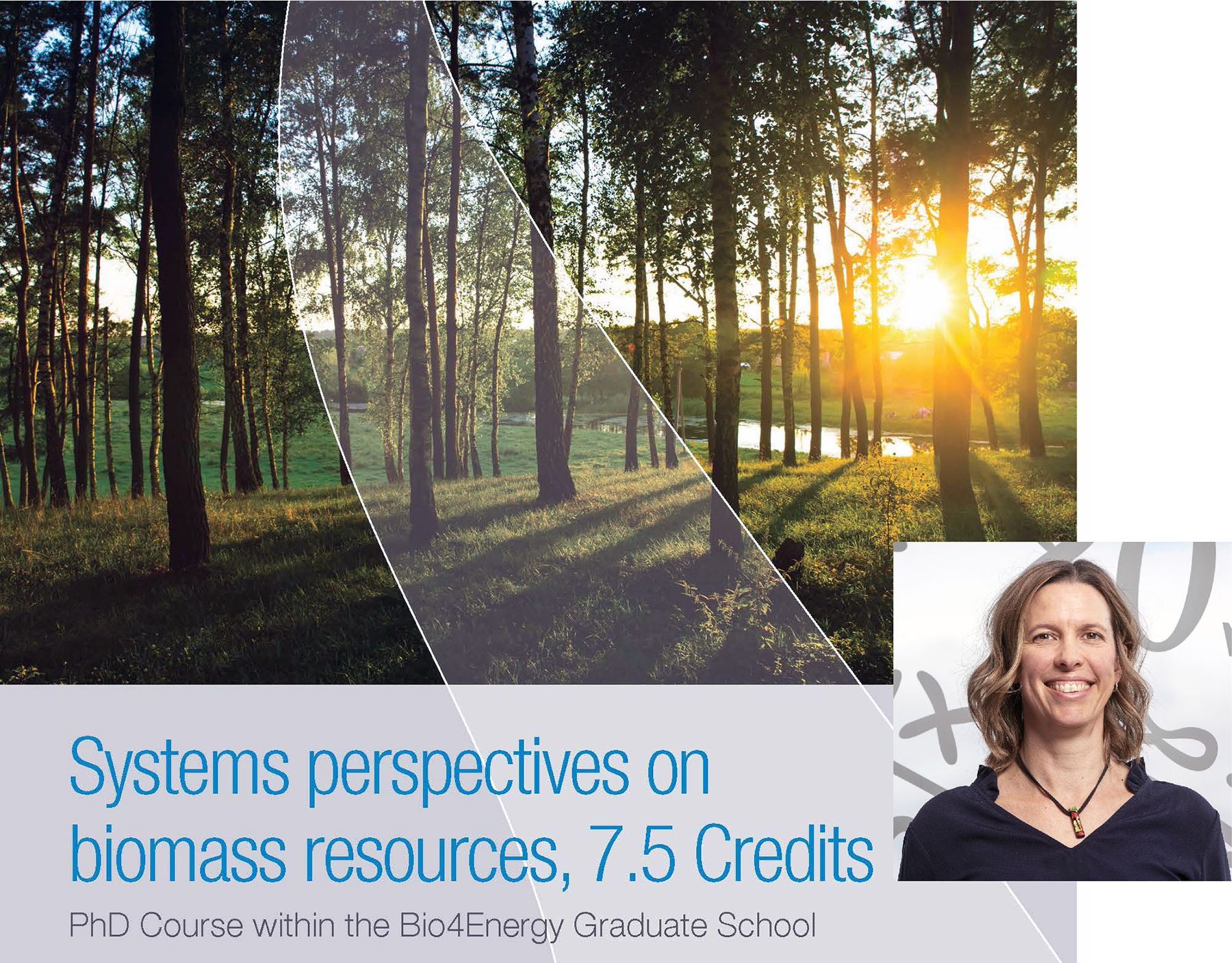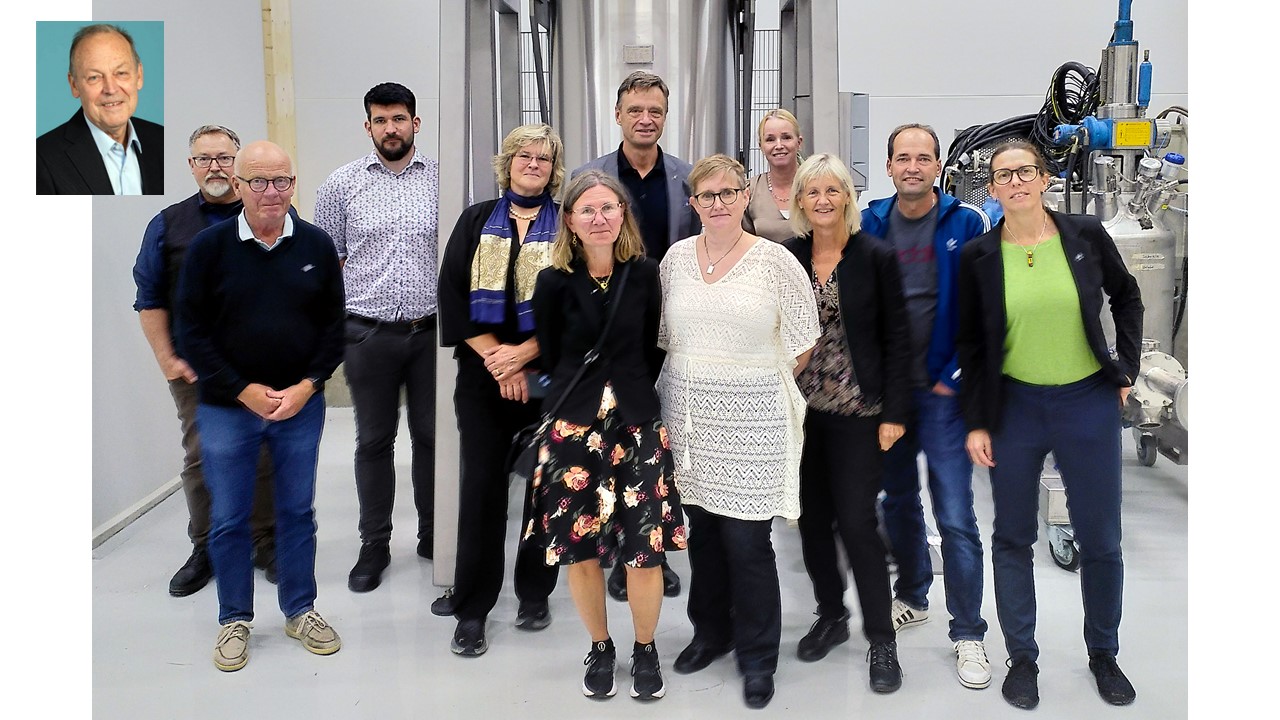Systems’ Perspective Needed in Societal Transition Research: Course Start
The application is open to Bio4Energy’s generic course Systems’ Perspectives on Biomass Resources. It is a training about systems analysis of bio-based technologies, processes and systems.
“You learn to develop a holistic perspective; to see the big picture. This is important for all researchers and not only when it comes to bioenergy, although this is the topic of this course”, said Elisabeth Wetterlund, professor at Luleå University of Technology (LTU), who is new course coordinator.
“You learn to develop a holistic perspective; to see the big picture. This is important for all researchers and not only when it comes to bioenergy, although this is the topic of this course”.
“It is both about learning to apply a systems’ perspective… and learning to put one’s own research into a wider context. This is particularly important when the research is about technology, phenomena or processes related to [societal] transition”, Wetterlund wrote in an e-mail reply to Communications.
Given that Wetterlund is also deputy manager of the research programme part of Bio4Energy, she should know.
Unique benefit that went from shut shop to open
The Systems’ Perspectives training is part of the Bio4Energy Graduate School on the Innovative Use of Biomass. At the beginnings of the research environment, the Graduate School was reserved for its own advanced student – PhDs and postdoctoral fellows.
In 2014, however, the Bio4Enery Board took the decision to open it to advanced students in Sweden and to interested professionals in the biorefinery and bioenergy sector. The reasoning behind it was basically that some things are too precious not to be shared.
“Bio4Energy has a national mission to contribute technology to produce liquid fuels… This is a strategic decision. We will embrace the rest of the country in a first step that is national. In a second step we should strive to build an international graduate school”, LTU vice-chancellor at the time, Johan Sterte, commented.
And so it was. With a growing membership and Bio4Energy establishing itself as a leading research environment—making methods and tools for developing advanced biofuels, “green” chemicals and smart bio-based materials—the decision was made to open the door to advanced students everywhere, so long as they were affiliated with an accredited institution of higher learning.
“You are in a context and together with others who do similar things as yourself; in this case bioenergy, biorefinery and the like… which gives a cross-disciplinary and multi-disciplinary perspective”.
First week of course is on location in northern Sweden
The first week and last day of course will be on location at Luleå in northern Sweden; 11-15 November and 11 March, respectively.
In between those dates, students will need to put time aside for distance learning in the form of online lectures and project work. Wetterlund, for her part, will be assisted in her coordinatorship by a very seasoned systems analysis expert, LTU professor Joakim Lundgren.
The two have taken turns with Robert Lundmark, economics professor at LTU, to teach and lead the course.
“You are in a context and together with others who do similar things as yourself; in this case bioenergy, biorefinery and the like… which gives a cross-disciplinary and multi-disciplinary perspective”, Wetterlund said.
Contacts
Elisabeth Wetterlund and Joakim Lundgren — Course coordinator Systems’ Perspectives on Biomass Resources
Dimitris Athanassiadis — Coordinator of the Bio4Energy Graduate School
For more information
Course Start: Systems’ Perspectives on Biomass Resources – Bio4Energy
Info Sheet: Systems’ Perspectives on Biomass Resources
Bio4Energy Graduate School – Bio4Energy
Related News
Bio4Energy Graduate School: Development of Biorefinery Innovations Up Next – Bio4Energy

 Bio4Energy: No copying or sharing
Bio4Energy: No copying or sharing




